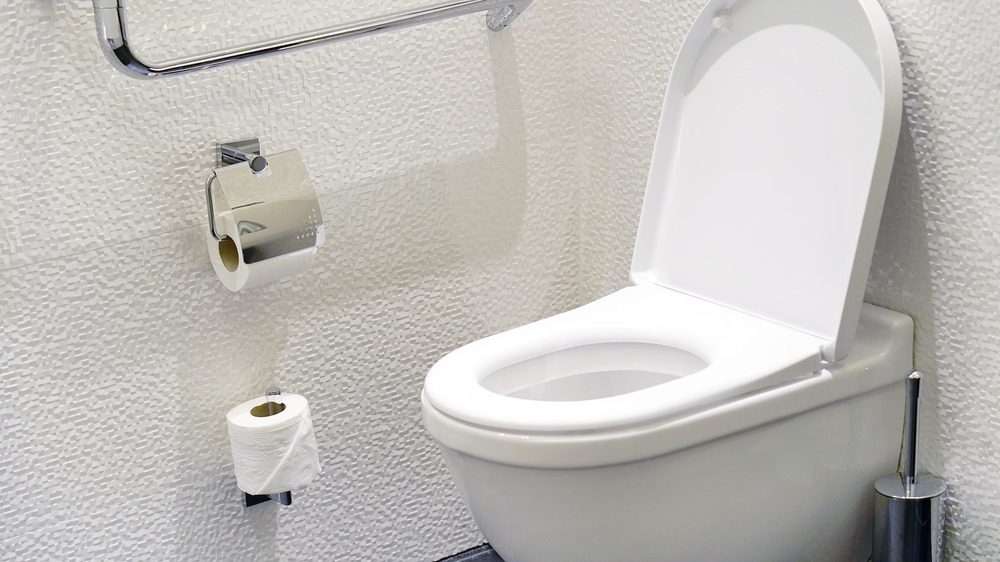How Many Times You Should Be Going To The Bathroom Every Day
When it comes to the number of bowel movements a person has per day, there is no "normal" (via the Cleveland Clinic). Generally, anything from three times a day to three times a week is considered to be a healthy amount of bowel movements. Still, an individual's normal pattern may fall outside this range. The majority of people have a regular bowel pattern, meaning they use the bathroom about the same number of times each day around the same time of day (via Healthline).
If there's a disruption in your bowel movement pattern, one or more factors may be to blame. The two main bowel movement conditions are constipation and diarrhea. Typically, constipation means having fewer than three bowel movements per week, while diarrhea is defined by more than three movements of loose stool per day.
In many cases, changes in bowel movement frequency last a short while and are not cause for concern. Common causes include digestive upset from eating spoiled, spicy or fatty foods, an increase in exercise, side effects from certain medications like antibiotics, or an intestinal bug that clears up in a day or two. Bowel movements usually return to normal within a day or two or with diet changes.
When changes in bowel movements may be a sign of something more
If constipation or diarrhea does not clear up on its own in a couple of days or is accompanied by other symptoms, such as nausea, vomiting, or fever, an underlying health condition is likely the cause. A bacterial, viral, or parasitic infection may be to blame. One example is Clostridioides difficile, or C. difficile, a bacterial infection that can be very serious if not treated. Another common cause is food allergies or a food intolerance, such as to lactose or gluten. Irritable bowel syndrome (IBS) is a common disorder of the colon or bowel that can lead to uncomfortable gastrointestinal symptoms like abdominal pain and diarrhea.
More serious conditions that can lead to long-term bowel movement problems include inflammatory bowel disease (IBD), an umbrella term for disorders including Crohn's disease and ulcerative colitis that involve chronic inflammation of the digestive tract. Chronic diarrhea or constipation may also be signs of pancreatitis, a bowel obstruction, gallbladder problems, or even cancer of the colon or another part of the digestive tract.
When to see a doctor about a change in bowel movements
Contact your doctor if you experience changes in your bowel movements and any of the following symptoms: bloody stools, severe or chronic diarrhea, unintended weight loss, painful or swollen abdomen, nausea, vomiting, fever, chills, incontinence, or very painful bowel movements. A physician will take a physical exam and may run some tests, including blood or stool samples, urinary analysis, and x-rays to determine what may be wrong.
Mild diarrhea can be treated with over-the-counter medicine, such as loperamide (Imodium) or bismuth subsalicylate (Pepto-Bismol). Over-the-counter stool softeners or laxatives can help ease constipation (via Mayo Clinic). A bacterial infection will need to be treated with antibiotics, which your doctor will prescribe. If you have a food allergy or intolerance, you will need to change your diet to avoid the foods that trigger your symptoms. Finally, if your bowel movement issues are caused by a more serious health condition, such as IBD, your doctor will come up with a treatment plan to treat your symptoms.



